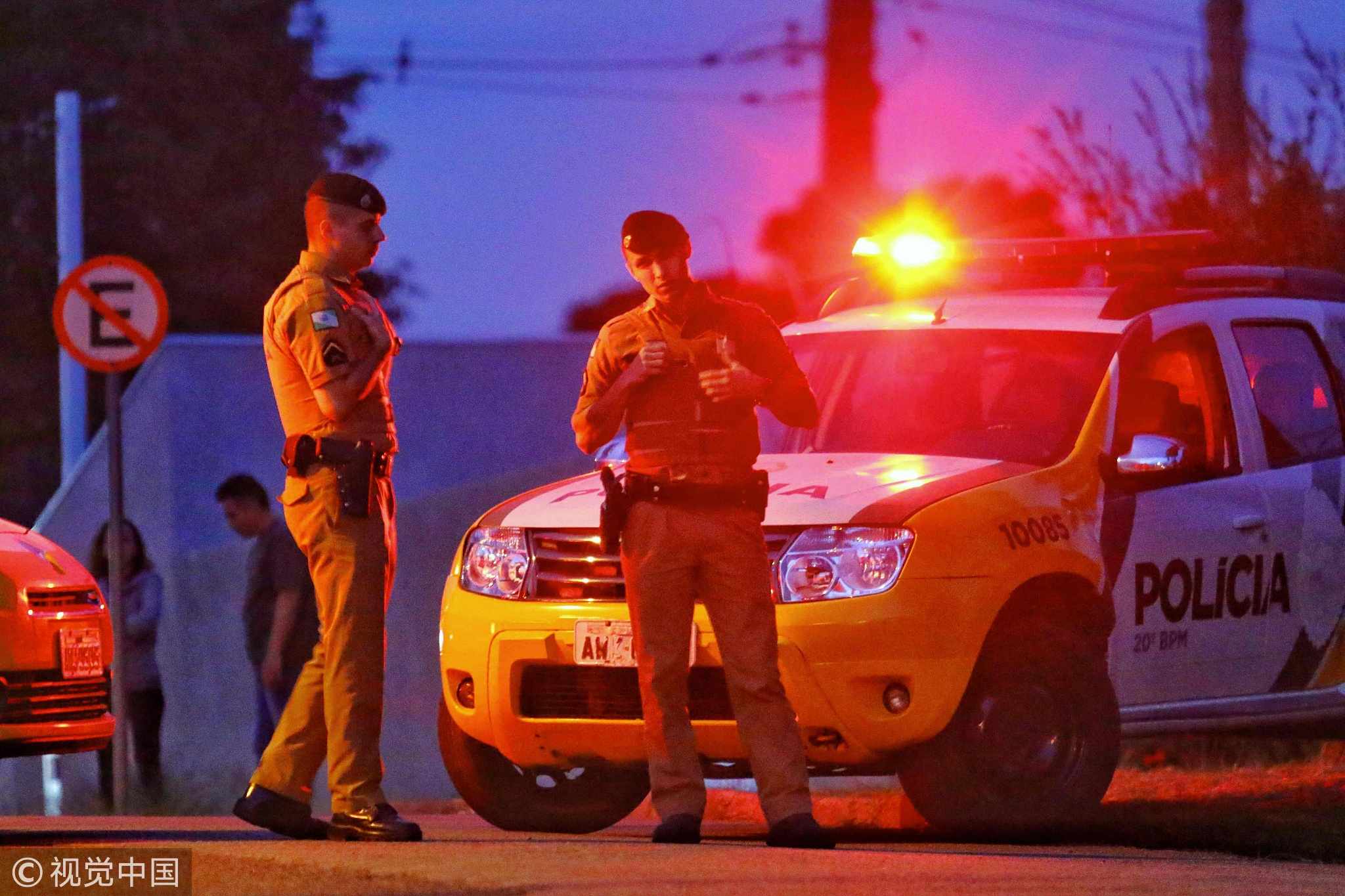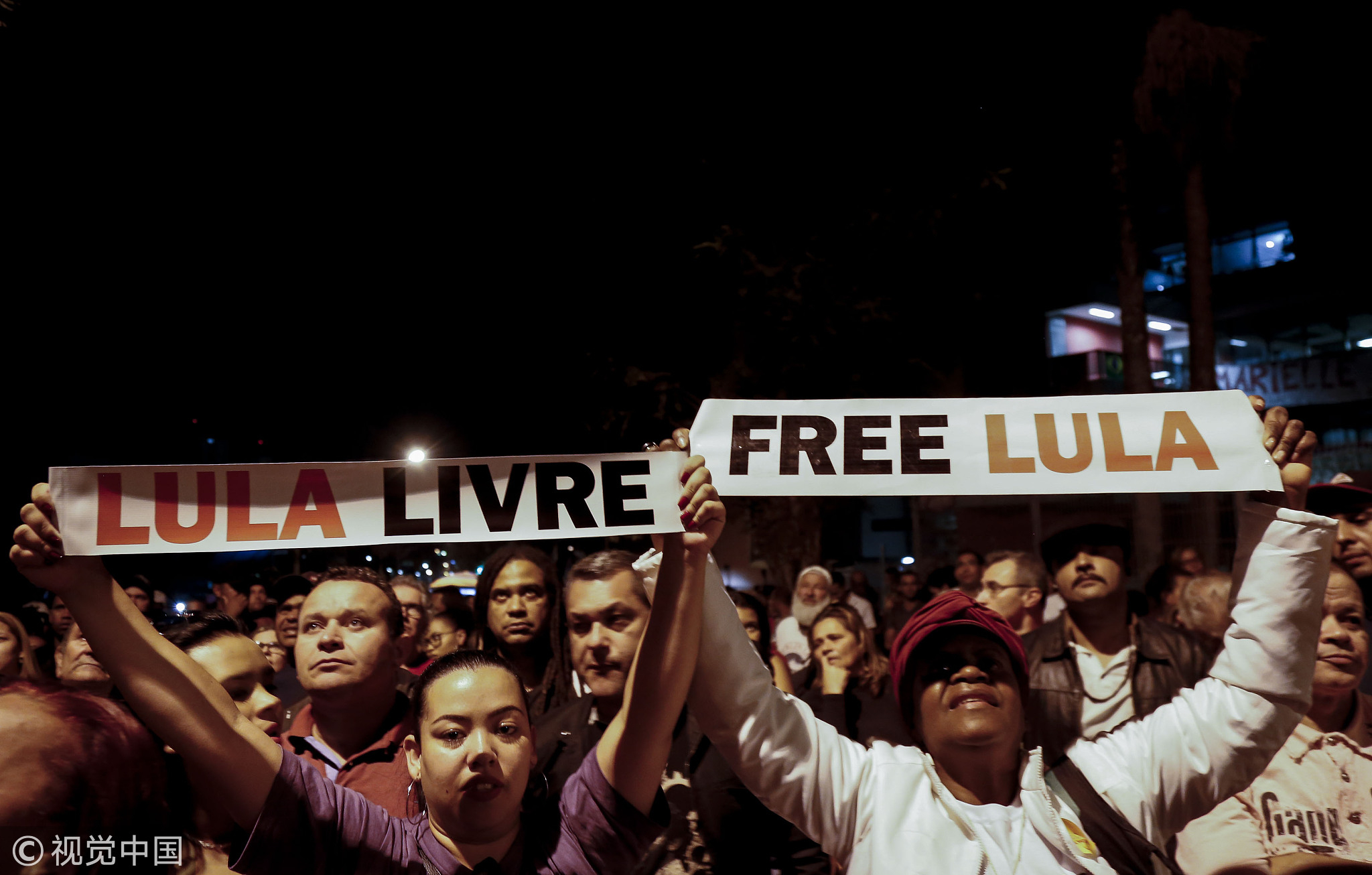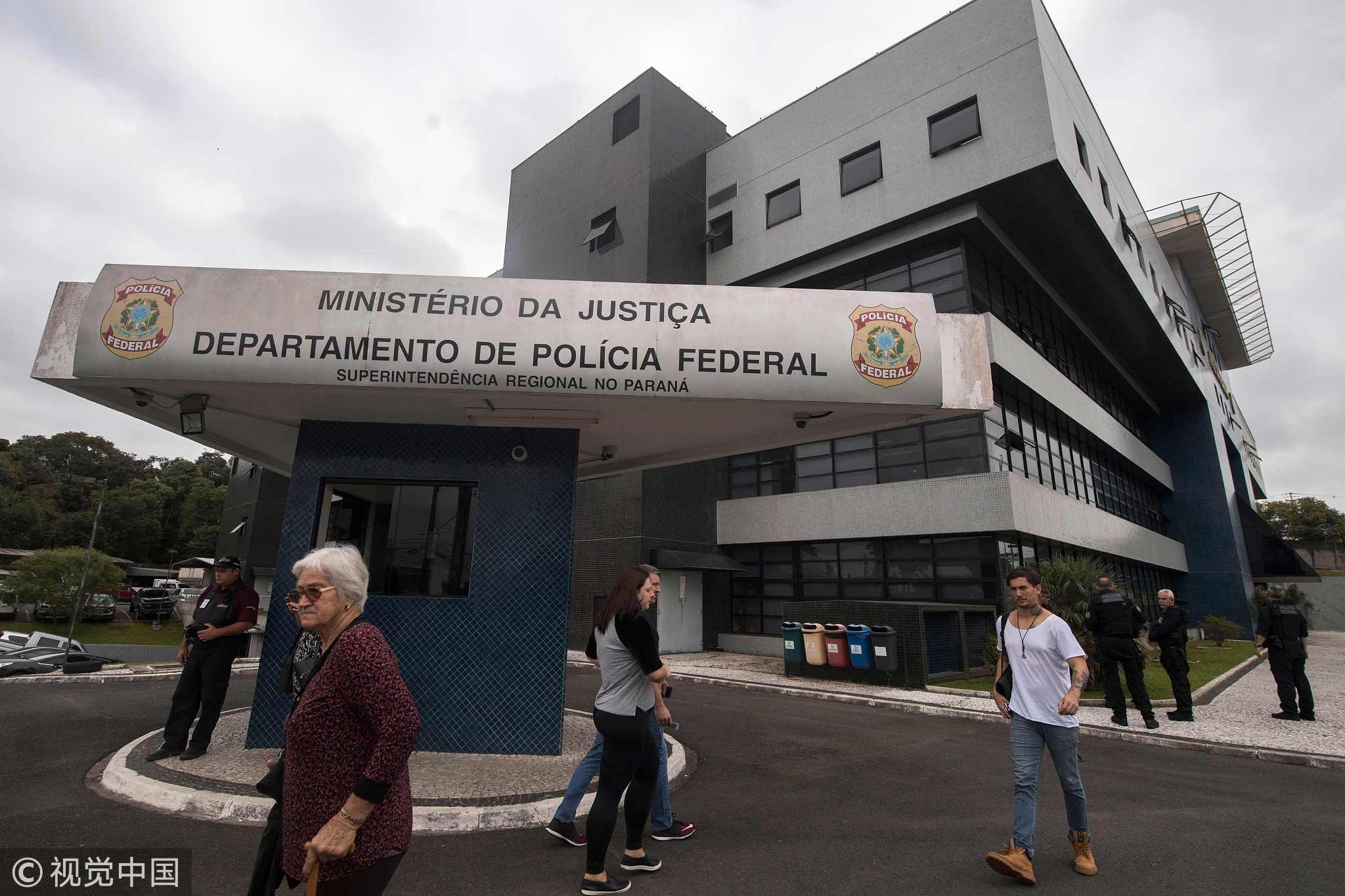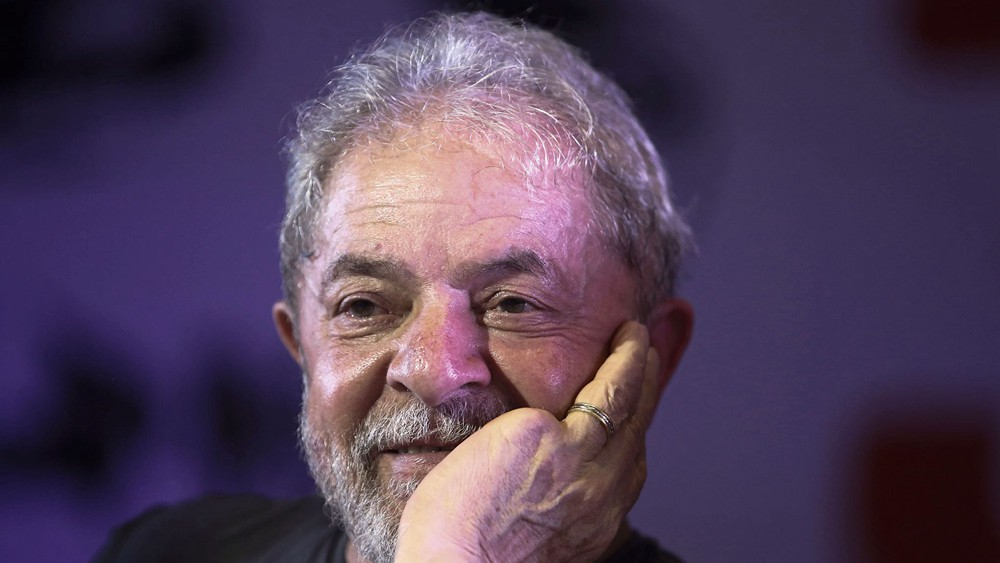Former Brazilian president Luiz Inacio Lula da Silva remains in jail after a day of legal back-and-forth that saw an appeals court overturn a judge's decision to free him on Sunday.
Though he is serving a 12-year sentence for corruption, the wildly popular leftist continues to lead opinion polls ahead of October's presidential election and has vowed his name will be on the ballot.
Lula, 72, has been imprisoned since April following his conviction for accepting a seaside apartment as a bribe from Brazilian construction company OAS.
He has insisted on his innocence and branded the corruption accusations a political conspiracy aimed at thwarting his electoral aspirations.

Police officers block a road as supporters of former Brazilian President Luiz Inacio Lula da Silva demonstrate to demand his release in the Brazilian city of Curitiba, July 8, 2018. /VCG Photo
Police officers block a road as supporters of former Brazilian President Luiz Inacio Lula da Silva demonstrate to demand his release in the Brazilian city of Curitiba, July 8, 2018. /VCG Photo
In a Sunday afternoon ruling, Judge Pedro Gebran Neto overturned a shock order to free Lula, which dropped hours earlier from Judge Rogerio Favreto at an appeals court in the southern city of Porto Alegre – the same one that had ordered the ex-president's arrest.
Favreto, the weekend duty judge, had ruled in favor of several deputies of Lula's Workers' Party. On Friday they submitted a habeas corpus application on the former president's behalf, arguing he had been illegally imprisoned.
On the heels of the first ruling, top anti-corruption judge Sergio Moro – who originally sentenced Lula in July 2017 – said Favreto did not have the power to secure the leftist's release.
Gebran Neto followed suit, instructing federal police at a prison in Curitiba city to keep Lula behind bars.

Supporters of former Brazilian President Luiz Inacio Lula da Silva demonstrate demanding his release in Sao Bernardo do Campo, in metropolitan Sao Paulo, July 8, 2018. /VCG Photo
Supporters of former Brazilian President Luiz Inacio Lula da Silva demonstrate demanding his release in Sao Bernardo do Campo, in metropolitan Sao Paulo, July 8, 2018. /VCG Photo
Yet another twist emerged as the tense afternoon wore on.
Favreto insisted his previous order stood and ordered that Lula should be released within an hour's time.
That deadline passed, and at 6:30 p.m. (2130 GMT), the former president remained locked up. About 500 supporters gathered outside his prison in Curitiba, waving banners, Brazilian flags and signs calling for his freedom.
After ruling Brazil from 2003 to 2011, Lula left office with sky-high ratings following an economic boom and widely praised social programs to reduce poverty.

A general view of the Federal Police headquarters where former Brazilian president Luiz Inacio Lula da Silva serves his 12-year prison sentence, in Curitiba, Parana State, April 6, 2018. /VCG Photo
A general view of the Federal Police headquarters where former Brazilian president Luiz Inacio Lula da Silva serves his 12-year prison sentence, in Curitiba, Parana State, April 6, 2018. /VCG Photo
"Lula free now!" read his Twitter account after Favreto's order, expressing hope for "the end of the illegal imprisonment of Lula."
But even if released, Lula could see his candidacy invalidated by the South American country's electoral court.
Brazilian courts have repeatedly stifled his many efforts to secure freedom.
Just last month Brazil's Supreme Court withdrew Lula's appeal from its agenda after a lower appeals court ruled the prison sentence could not be referred to the top bench.
The lower court said the top chamber should only handle cases related to possible constitutional violations, a standard which Lula's request did not meet.

General view of a session of the Supreme Court as it was releasing its final decision about the habeas corpus plea for the former Brazil president Luiz Inacio Lula da Silva, in Brasilia, April 4, 2018. /VCG Photo
General view of a session of the Supreme Court as it was releasing its final decision about the habeas corpus plea for the former Brazil president Luiz Inacio Lula da Silva, in Brasilia, April 4, 2018. /VCG Photo
Prosecutors in May filed new graft charges against Lula, his ex-economy minister and two other political figures allegedly promised 40 million US dollars by the Odebrecht conglomerate, which is also linked to corruption scandals elsewhere in Latin America.
The charges are part of operation "Car Wash," Brazil's biggest ever anti-graft crackdown. It has targeted several former presidents, current President Michel Temer and politicians from all major parties.
Investigators discovered that politicians and their parties were allegedly taking money from Odebrecht and other big companies in exchange for political favors and contracts with state oil company Petrobras.
Yet Lula and his supporters remain steadfast in their goal to take back control of Brazil's executive branch.
The former president had been writing football commentary from jail, which a veteran Brazilian sports journalist and leftist sympathizer then read on air.
But last week Lula ceased commenting on the World Cup to comply with electoral rules forbidding potential candidates from making television and radio appearances after June 30.
Source(s): AFP






